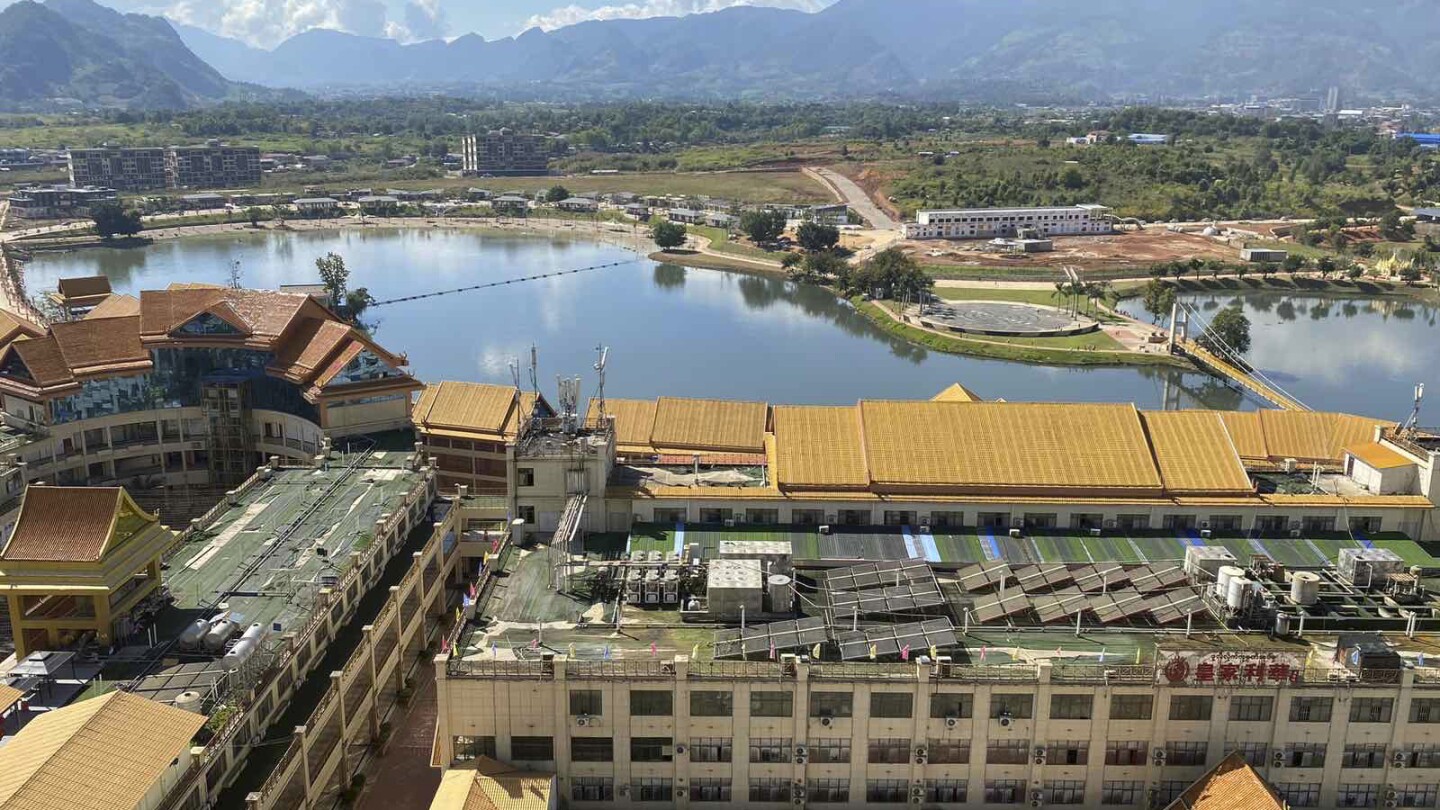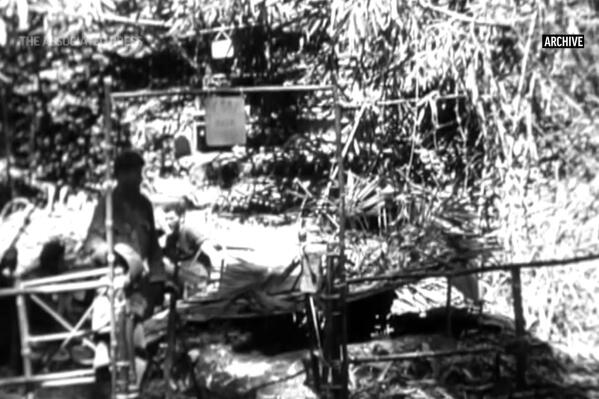BANGKOK (AP) — An alliance of ethnic armed groups in northeastern Myanmar has reportedly achieved one of the main goals it set when it launched an offensive last October by taking control of Laukkaing, a key city on the border with China, according to local residents and independent media accounts on Friday.
The Three Brotherhood Alliance — comprising the Myanmar National Democratic Alliance Army, or MNDAA, the Ta’ang National Liberation Army and the Arakan Army — took control of Laukkaing late Thursday after forces of the country’s military government reportedly laid down their arms and were allowed to withdraw, according to reports that have not yet been officially confirmed by either side.
Laukkaing is the capital of Kokang Self-Administered Zone, geographically part of northern Shan state. The MNDAA is a military force of the Kokang minority, who are ethnic Chinese.
The city’s fall to the alliance is the biggest in a series of defeats suffered by Myanmar’s military government since the offensive was launched, underlining the pressure it is under as it battles pro-democracy guerrillas and other ethnic minority armed groups across the country.
Ethnic armed organizations have battled for greater autonomy on and off for decades, but Myanmar has been wracked by what amounts to civil war since the army seized power in February 2021 from the elected government of Aung San Suu Kyi, sparking nationwide armed resistance by pro-democracy forces.
Whether the Three Brotherhood Alliance will try to extend its offensive outside of Shan state is not yet clear, though it has vowed to keep fighting against military rule. The Arakan Army is also engaged in combat on its home ground in Rakhine state in western Myanmar.
Key to Thursday’s events was the surrender of the regional military command headquarters based in Laukkaing, which had been under virtual siege for months. Most of the seven army battalions believed to have been under its command had already collapsed in fighting over the past few weeks.
A Laukkaing resident who lives two miles away from the headquarters told The Associated Press that it had fallen into the hands of the MNDAA after the soldiers stationed there laid down their weapons. He spoke on the condition of anonymity for fear of being arrested by either side. He said soldiers under its command in the city had already surrendered and been allowed to leave the city on military trucks since Thursday evening.
Independent online Myanmar news outlets, including Khit Thit Media and Myanmar now, reported similar details.
Another Laukkaing resident, who also asked not to be named for safety reasons, said an officer in the regional command confirmed in text messages with her that it had given up the fight in part because of the burden of caring for many wounded soldiers in the hospital in the headquarters compound. She added that she was told that one group of soldiers in the city had refused to surrender and continued to fight.
The Shwe Phee Myay News Agency, an online news site reporting from Shan state, said about 1,000 soldiers had surrendered, and many of them were transported to Lashio, the capital of Shan’s northern region, under an agreement with the MNDAA for their repatriation.
Video clips circulating on social media purportedly showed the soldiers and their family members being transported in various vehicles. The videos could not be verified.
When the alliance launched its offensive, it cast it as a battle against military rule and an effort to rid the region of major organized criminal enterprises, including cyberscam operations controlled by Chinese investors in collusion with local Myanmar warlords, especially in Laukkaing. China has publicly sought to eradicate the large-scale criminal industry and tens of thousands of people involved have been repatriated to China in recent weeks.
But the offensive was also widely recognized as an effort by the MNDAA to regain control of the Kokang Self-Administered Zone by ousting a rival Kokang group backed by the military government from its seat of power.
Peng Deren, the MNDAA commander, said in a New Year’s speech published by The Kokang, an affiliated online media site, that the alliance had seized over 250 military targets, five border crossings with China and arrested about 1,000 prisoners of war.
He said more than 300 cyberscam centers were raided and more than 40,000 Chinese involved in cyber crimes were repatriated to their country.
——-
This story has been corrected to give official name of Kokang Self-Administered Zone throughout.


